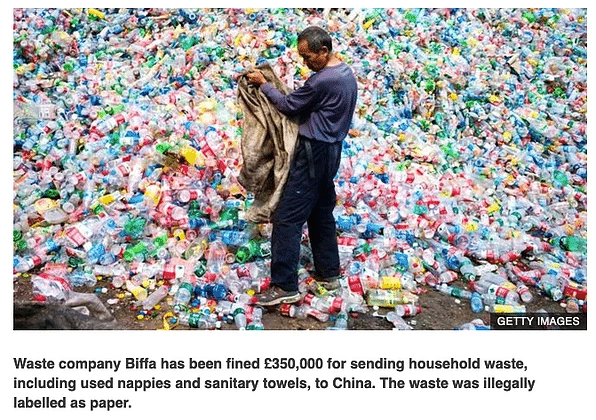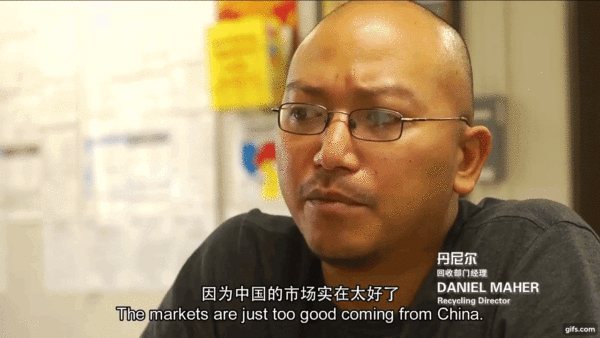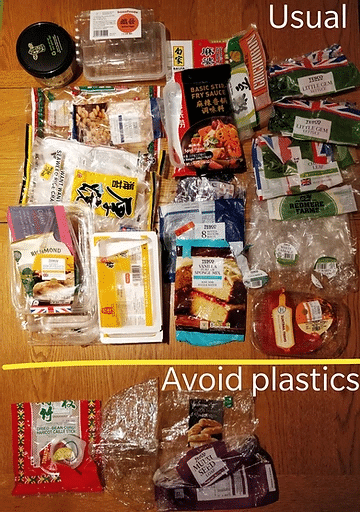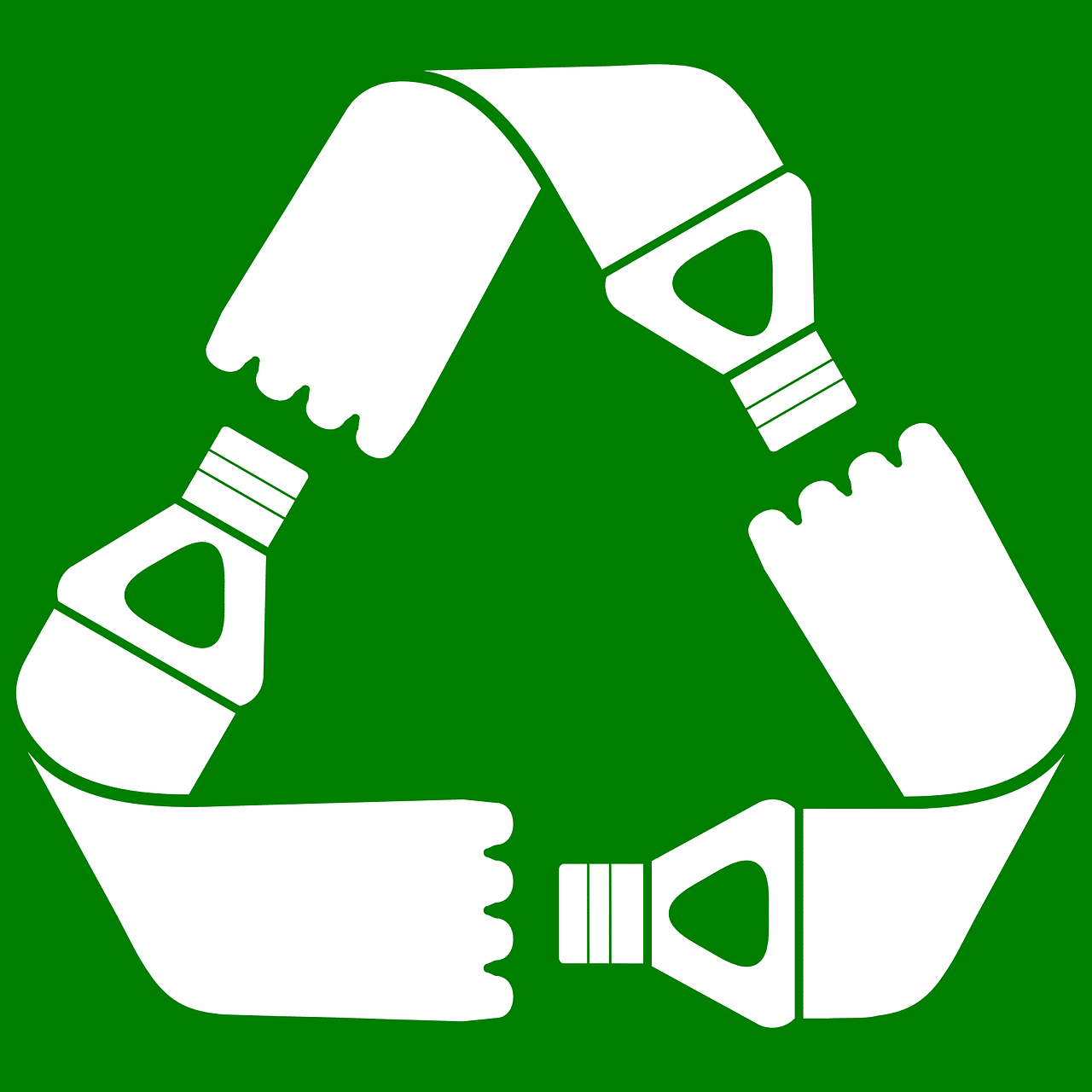The plastic recycling industries search worldwide for low-quality plastics buyers from developing countries. Developing countries could give better offers because they don’t take the environmental costs and health costs into account. As long as there is poverty, someone will take this nasty job for a low pay just to feed their stomach. But we can change it…
Moving from China to the UK, one difference in my life is that I have to sort my household waste and dump them separately. Waste recycling in China seems to lag behind. One day when I was doing this new routine, I became curious about how my waste will end up in the UK.
Easily I found tons of videos which walk you through the garbage factories both in the UK as well as in other developed countries. With the upbeat background music, I saw piles of garbage automatically being sorted into cans, paper, and different types of plastics by “state-of-the-art” conveyor belts. Everything is cheerful so far – technology saves our planet.
However, one short footage rang an alarm in my head. Most of the videos mentioned briefly that the low-quality plastics (the “chaotic evil” which cannot be sent directly to the melting machine) were sent to third party companies for further process.
What are the “low-quality plastics” that we produce? They are, for example, the small chip bags inside a bigger bag, bubble tea bottles (made from different kinds of plastics), and sometimes a yogurt bottle with yogurt on the wall. They end up in the general waste bin for the sake of my convenience or laziness.

I felt guilty for doing so, but I did it again and again. So hey, their destiny is what I truly care about! Guess what? They wouldn’t end up here in the UK. Most of them travelled thousands of miles to where I came from!
The Inconvenient Reality
A documentary called Plastic China, filmed between 2008 and 2011, looked into the silent side of the story.
The plastics which couldn’t be sorted by “state-of-the-art” conveyor belts travelled from the UK, US, Canada, Australia, etc. to China and were sorted mostly by the hands of former farmers. The garbage factory was also their home. As it is a privilege of the rich in China to buy imported goods, seeing rooms of plastic packages labelled with English in a poor village hit me with a strong sense of surrealism. All the family members, from pre-school kids to the seniors, were involved in this family business. Untended children played with the unsanitary waste, including used medical disposals.
This is not a single case —- such small private businesses are often present in Chinese villages – from the north to the south. Are they paid to “digest” the foreign garbage? No. Much to my surprise, they actually paid for the garbage. People then sort it manually to meet the level of industrial recycling, and then sell it on for money.
The Changed, The Unchanged
Since 2018, China banned importing plastic scrap which is not 99.5% pure due to concerns about contamination and pollution. This ban, affecting at least 50% of the world’s plastic recycling trade, jammed piles of nasty plastic garbage and created a panic in western countries back then. Some commentators argued that “developed nations will, at last, have to face up to the true cost of their plastic addiction instead of shipping the problem to China”. However, very soon, Malaysia, Thailand, Philippines, Indonesia, Turkey, and Poland filled the vacuum.

A villager in the documentary said “farmers here can make some money out of it. So you can’t say it is pure evil”. The plastic recycling industries of the developed countries fulfil their high-standard environmental rules of their homeland and maximize their profit. So is it a win-win situation? Definitely not, unless “win-win” means the stronger wins twice!
Here underlies an international unfairness. With globalization, companies search worldwide for better offers regardless of why better offers exist in such places. It is definitely not because they have more advanced technology. In contrast, outdated technics, poor management and market competition induce even severer and irreversible damage to workers’ health and the environment. People in those unprivileged countries could give better offers only because they didn’t take the environmental cost and their health costs into account. The logic is simple: as long as there is poverty, someone will take this nasty job at a lower price (here they even give a negative quote).

If we are proud of the grand advancement in productivity, society, and humanity in the recent few hundred years of human history, then it feels quite humiliating that poverty is still de facto the most cost-effective and efficient way to recycle our waste, as developed countries have chosen.
Remember, all this happens when we, the residents, already pay for our waste to be processed properly. However, this money has not gone to the people who actually do the hardest work. We should not ignore this inconvenient truth of how our waste smoothly disappears from our lives. This is a justice problem. Firstly, those people should be paid (rather than pay) adequately to process our waste. Secondly, environmental laws need to specify the criteria of how waste is eventually processed both at home and abroad. This will become the real positive feedback loop to promote the waste recipients to upgrade the technology, secure workers’ health, and protect the environment.
Where Is My Plastic Waste From?
Even when the workers were to be paid and secured, let’s face the fact: our current technology is not perfect. The more we use, the more unrecyclable or even harmful materials will pollute the environment. To understand how much plastic I used and how much is avoidable, I kept the food-related plastics during 15 normal days and another 15 days, when I purposely avoided plastic packaging by:
1. Only buying unpacked or paper-wrapped goods from supermarkets. Some paper containers are actually coated by a thin plastic layer which makes it far more difficult to recycle!
2. Taking my own bags to the local farmer’s market.
3. Taking my own containers to shops providing unpacked meat and grains. I suggest Maroc Deli (a halal food shop) and Waitrose if you were in Oxford.
4. Making my own snacks —- life-essential!
See, it is not that complicated. I did not change what I ate and how much I spent in general. While the difference is significant: 201g vs. 23g!

But there are still certain difficulties: I accidentally used the dip container from McDonald’s and the plastic wrapper of pizza in a paper box. I cannot avoid plastic packages when buying any exotic food imported from other countries, such as food that I love from my home country.
It is also this process which made me realize that the ultimate driver for applying plastic packages is so business can sell products to more customers farther away. The unstoppable invasion of plastics manifests itself in the trajectory of societal development. Among the places I have lived, most of the things -especially the cheapest- are wrapped by plastics in the UK and the US. In China, unwrapped meat, vegetable, and fruit are still the most popular. But China is evolving fast with its rapid-growing online shopping and food (especially takeaway) industries. Acknowledging that such abusive use of plastics neglects the environmental cost of the product is the first step to pressure the cooperatives and the governments to become responsible.
The usage and disposal of plastics are not only a purely environmental issue but also a justice problem. The next time when you want to throw an unwashed plastic takeaway-food container into the general bin, please think for a second about how it will probably end up somewhere in southeast Asia a few months later. Our pleasant modern lifestyle is in this way connected to a completely different world.
Reduce and reuse is the rule of thumb for individuals, while we also need to face the unjust reality of the international recycling industry and press for reform.
Reduce, reuse, recycle, reform.


